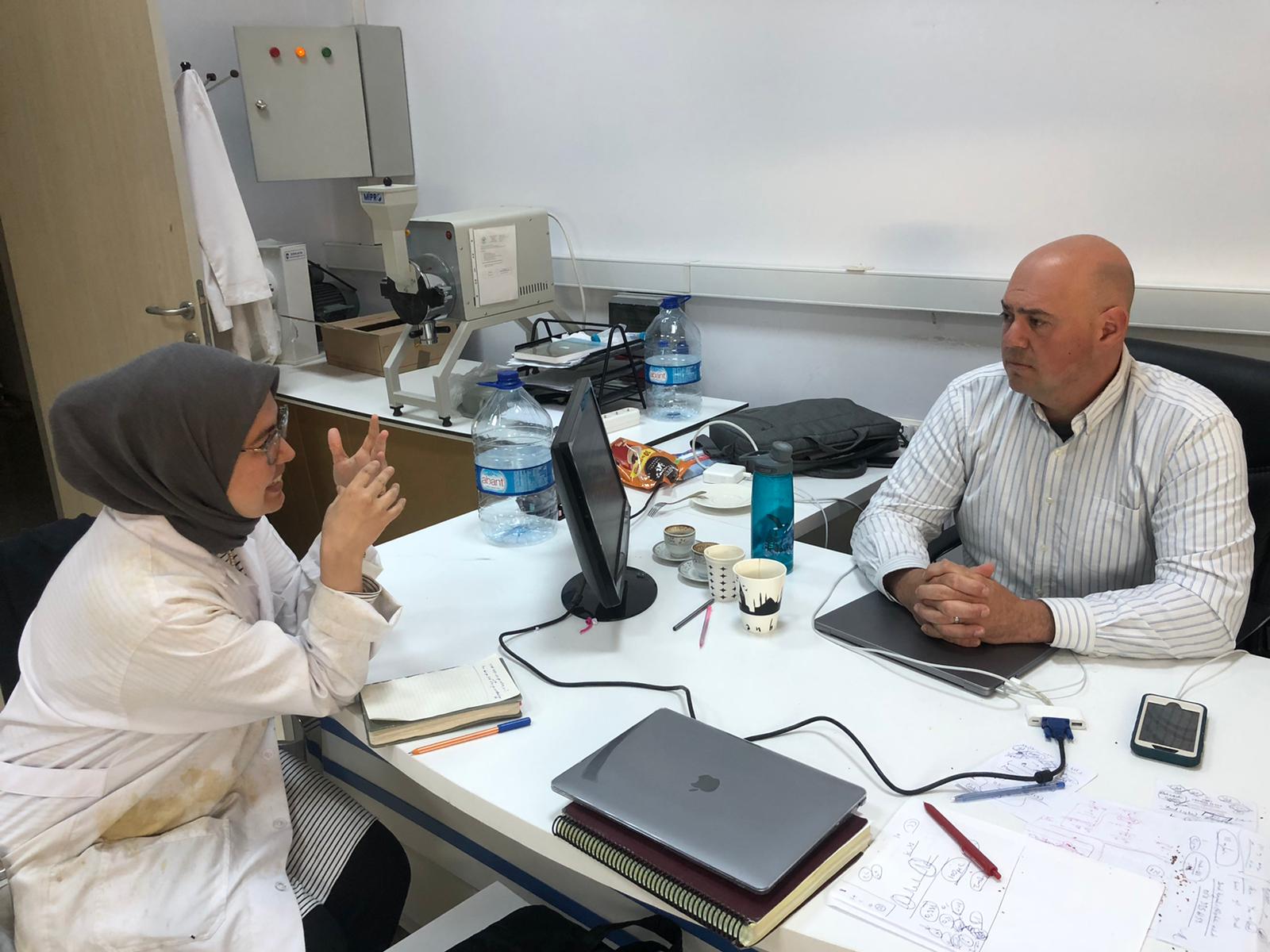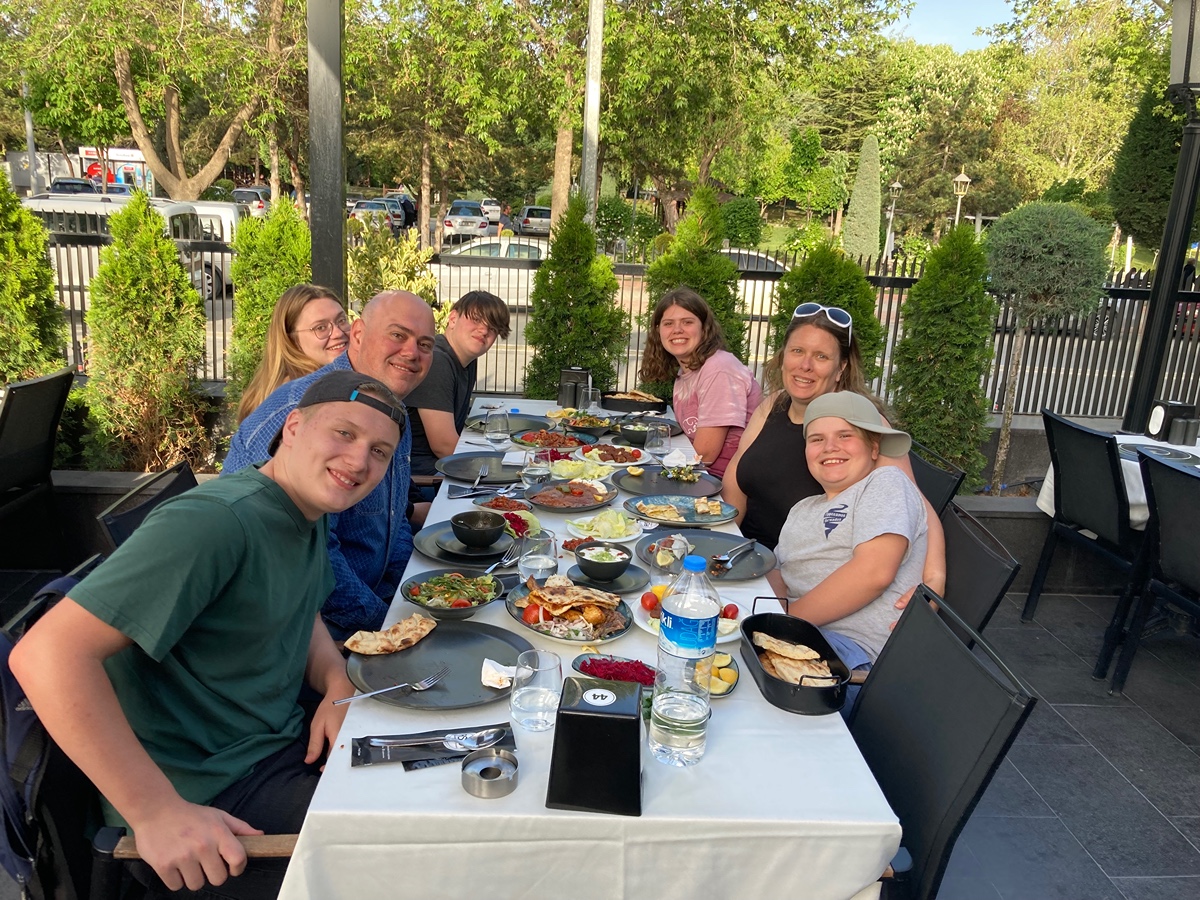Food science professor on Fulbright in Türkiye: When wheat isn’t wheat
Steve Lindemann, associate professor of food science, spent part of his summer in an unfamiliar country — new environment, new terrain, new language. But of most interest to Lindemann, Türkiye (formerly Turkey) offered a new palate and the chance to try foods he’d never eaten before.
“And if you’re like me,” he says, “you’re wondering who knows how any of these novel foods are influencing my particular gut microbiome.”
Lindemann returned in early June from spending a month in Konya, Türkiye as a Fulbright Specialist at Necmettin Erbakan University. The selective program, sponsored by the U.S. Department of State, funds a U.S. faculty member's travel and work at a host institution.
“In this case I was working on curricular development around microbial communities and how to understand and analyze them,” Lindemann says. The exchange grew from his collaboration with Yunus Tunçil, a faculty member at Necmettin Erbakan University and former Purdue PhD student and postdoctoral researcher.
Lindemann studies food-microbiome interaction. “I’m interested in how the gut microbiome responds to different types of food and food components and how that is relevant to health,” he explains. Tunçil asked Lindemann to come teach students and faculty at the Turkish university to do the sequence analysis essential to this research.
Everyone benefits when non-Western universities add this capability, Lindemann says. He points to the huge genetic diversity of food around the world that is sourced from different types of plants, as well as the variations in food preparation.
“But we have a huge bias problem in microbiome sciences in general because of where the tools are located,” he says. “The funding and the sequencers and the majority of the work has been done in Western populations with mostly Western subjects.”
He cites wheat as an example. “One of the things we do extensively in my lab is work on wheat fibers and how they interact with the gut microbiome,” Lindemann says. But the lines of wheat he works with are U.S. genotypes made by U.S. seed companies.
The genotypes in Türkiye are different. “Their Anatolian wheat strains might be doing something different than our American wheat strains, and we’re never going to figure that out if we’re only looking at American hard red wheat genotypes,” he explains.
The experience raised Lindemann’s awareness of the diversity in dietary components. “We began to think about how the genetics of wheat that comes from the Middle East might be different in terms of influence on gut microbiome structure and function than American bread and American-raised wheat. How would we begin to study that process to optimize it to see whether important health effects come from these differences in physical and chemical structure of the grains? This is essential to the scientific process. We’re good as humans at lumping things together and saying how they’re alike and then studying those things as if they’re identical: ‘Wheat is wheat’ — but it’s not.”
An impetus for his travel to Türkiye was, therefore, to acknowledge the limitations of studying only Western diets, he says. “We need to study microbiome and food interactions in every culture around the world, and that’s going to require scientists from those cultures to take the lead.”
Purdue is well-positioned to lend a hand, he adds. “We can enable scientists to study foods that are relevant to their own diets and culture. We can give them the tools and ability to take that on their own and insert their own interesting scientific questions around how you shape the gut microbiome for health in a variety of different cultural contexts. Western scientists are not going to solve this problem for the entire world.”
Lindemann and his Turkish counterpart led workshops in varied locations in which they guided students through processing sequences. “These programs require that you be familiar with how sequences are generated, what they’re like and how to process them, whether the algorithm’s working correctly or incorrectly, and how to adjust the commands,” Lindemann says. While highly technical, the approach gives student and faculty a foundation for doing their own analysis on their own computers with their own sequences.
“Even if they don’t feel 100% confident to walk right out the door and do it themselves, most report that they feel like the barrier is decreased to them doing it on their own in the future,” he says.
In presentations and mentoring sessions with graduate students, Lindemann also introduced them to U.S. higher education in biomedical sciences. He invited the students to stay in contact, and some have asked about opportunities in his lab. “There are certainly implications for identifying good matches with students overseas who might be interested in a Purdue education as a graduate student,” he says.
Lindemann says taking his family to Türkiye enhanced the experience. He and his wife and their five children stayed in Tunçil’s home. “That was a beautiful thing because we got to experience daily life as Turkish people experience it,” he says.
Beyond the challenge of communicating in broken Turkish with people who spoke no English, the month in Türkiye also got his children — ages 18, 16, 14, 13 and 11 — past what Lindemann calls “the honeymoon that comes from being in a new culture” for a more realistic view of living interculturally and bridging the gaps that invariably emerge.
His Fulbright experience will impact his work at Purdue, Lindemann says. “I think I had a U.S.-centric view of the materials that would come into my research program beforehand. Being there made me realize the genetics of those plants may be very different. The compositions could be very different. Their effects on our gut microbiome could be very different. And we’re just not studying this.”
Lindemann and Tunçil and their research teams plan to continue their collaboration. Lindemann hopes he helped lay the groundwork for institutional partnerships as well. “I think we did a good job of getting knowledge transferred, but it’s a lifelong process,” he says.It’s the kind of thing that initiates interest and ability in people; and in the long string of events, we can start to develop this into something that becomes a capability —and beyond that capability, expertise.
- Steve Lindemann, associate professor of food science








